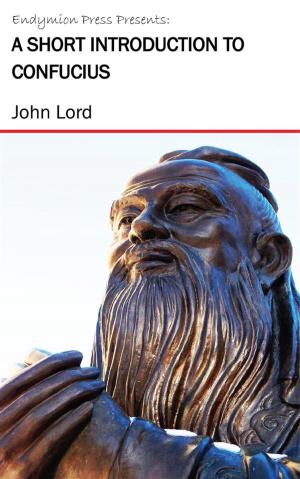| Author: | John Lord | ISBN: | 9781531292546 |
| Publisher: | Endymion Press | Publication: | August 13, 2016 |
| Imprint: | Language: | English |
| Author: | John Lord |
| ISBN: | 9781531292546 |
| Publisher: | Endymion Press |
| Publication: | August 13, 2016 |
| Imprint: | |
| Language: | English |
Whatever may be said of the inferiority of the ancients to the moderns in natural and mechanical science, which no one is disposed to question, or even in the realm of literature, which may be questioned, there was one department of knowledge to which we have added nothing of consequence. In the realm of art they were our equals, and probably our superiors; in philosophy, they carried logical deduction to its utmost limit. They advanced from a few crude speculations on material phenomena to an analysis of all the powers of the mind, and finally to the establishment of ethical principles which even Christianity did not supersede.
The progress of philosophy from Thales to Plato is the most stupendous triumph of the human intellect. The reason of man soared to the loftiest flights that it has ever attained. It cast its searching eye into the most abstruse inquiries which ever tasked the famous minds of the world. It exhausted all the subjects which dialectical subtlety ever raised. It originated and carried out the boldest speculations respecting the nature of the soul and its future existence. It established important psychological truths and created a method for the solution of abstruse questions. It went on from point to point, until all the faculties of the mind were severely analyzed, and all its operations were subjected to a rigid method. The Romans never added a single principle to the philosophy which the Greeks elaborated; the ingenious scholastics of the Middle Ages merely reproduced Greek ideas; and even the profound and patient Germans have gone round in the same circles that Plato and Aristotle marked out more than two thousand years ago. Only the Brahmans of India have equalled them in intellectual subtilty and acumen. It was Greek philosophy in which noble Roman youths were educated; and hence, as it was expounded by a Cicero, a Marcus Aurelius, and an Epictetus, it was as much the inheritance of the Romans as it was of the Greeks themselves, after Grecian liberties were swept away and Greek cities became a part of the Roman empire. The Romans learned what the Greeks created and taught; and philosophy, as well as art, became identified with the civilization which extended from the Rhine and the Po to the Nile and the Tigris...
Whatever may be said of the inferiority of the ancients to the moderns in natural and mechanical science, which no one is disposed to question, or even in the realm of literature, which may be questioned, there was one department of knowledge to which we have added nothing of consequence. In the realm of art they were our equals, and probably our superiors; in philosophy, they carried logical deduction to its utmost limit. They advanced from a few crude speculations on material phenomena to an analysis of all the powers of the mind, and finally to the establishment of ethical principles which even Christianity did not supersede.
The progress of philosophy from Thales to Plato is the most stupendous triumph of the human intellect. The reason of man soared to the loftiest flights that it has ever attained. It cast its searching eye into the most abstruse inquiries which ever tasked the famous minds of the world. It exhausted all the subjects which dialectical subtlety ever raised. It originated and carried out the boldest speculations respecting the nature of the soul and its future existence. It established important psychological truths and created a method for the solution of abstruse questions. It went on from point to point, until all the faculties of the mind were severely analyzed, and all its operations were subjected to a rigid method. The Romans never added a single principle to the philosophy which the Greeks elaborated; the ingenious scholastics of the Middle Ages merely reproduced Greek ideas; and even the profound and patient Germans have gone round in the same circles that Plato and Aristotle marked out more than two thousand years ago. Only the Brahmans of India have equalled them in intellectual subtilty and acumen. It was Greek philosophy in which noble Roman youths were educated; and hence, as it was expounded by a Cicero, a Marcus Aurelius, and an Epictetus, it was as much the inheritance of the Romans as it was of the Greeks themselves, after Grecian liberties were swept away and Greek cities became a part of the Roman empire. The Romans learned what the Greeks created and taught; and philosophy, as well as art, became identified with the civilization which extended from the Rhine and the Po to the Nile and the Tigris...















